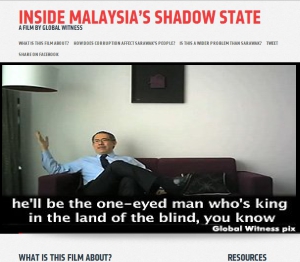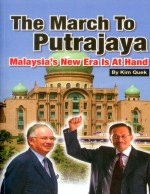 AZLAN ABDUL RAZAK
AZLAN ABDUL RAZAK
Mercy is not a word accompanied with a denigrating effect. Mercy is neither awarded nor rewarded to one as and when he demands it. Mercy is in fact a laudable act of proffering compassion and kindly forbearance to those who need it most.
In the case of the Pharisee and the tax collector, when the latter eventually attested to his sin to God, adjuring the forgiveness of the Lord and to be seen by Him as if he had committed no sin, Jesus said in Luke, “… and the tax collector, standing afar off, would not so much as raise his eyes to heaven, but beat his breast, saying, ‘God, be merciful to me a sinner!’” (Luke 18:13).
The Pharisee on the other hand did not favour the idea of forgiveness and was very much filled with pride, to which God, through a gentle chastisement, reminded him that it was dangerous to become holier than thou or self-righteous. If we are proud and not willing to turn over a new leaf, we will not have the mercy of God.
One might wonder if mercy is to be discussed about strictly in the context of sinners. In the Biblical anecdote above, despite the penitence demonstrated by the tax collector, the Pharisee had insisted on his intransigence over the matter.
As a result, not only did God warn against the danger of pride, He also praised the bravery of the tax collector who eventually secured the mercy of Christ to remain humble for everyone who exalts himself will be humbled, and he who humbles himself will be exalted.
Being humble does not at all mean submitting to others’ ideas that happen to run in contradistinction with ours. Humility is a lovely act of appreciating diversity without the need to jeopardise the values one staunchly subscribes to. It is an exercise of tolerance that, if practiced in good faith, will liberate one’s mind from the manacles of arrogance and sanctimony.
Surely disagreements are inevitable but so long as the exchange remains within a climate of civilised and engaging debate, not only can a diversity of ideas be welcomed and thus appreciated; a possibility of incorporation of ideas from two differing entities in the best interests of the society is certain to stand everyone in good stead.
Such disagreements are why it is unwise for only a version of a thing is advanced while another is deprived of the opportunity to enjoy the same. This proposition is not without the exception of the religious institutions whose role apart from overseeing the religious matters of the state, as is the case with Malaysia, is to ensure lasting harmony not only amongst Muslims but between all adherents, Muslims and non-Muslims alike.
Ensuring harmony cannot be achieved through a simple expedient of selective persecution of others who hold differing views in the name preserving the well-being of Muslims specifically and Islam generally. It is unfair, and by extension a disgrace to Islam itself.
Liberating a person from the mud of ignorance
Islam never says ‘No’ to any ‘Why’s. It never puts hindrances in the face of the people in pursuit of knowledge. Instead, Islam promotes the idea of liberating a person from the mud of ignorance paving a way into the heaven of knowledge.
Demanding and exercising freedom of thought is not alien to Islam. In Surah Al-Baqarah, Allah says, “Lo! in the creation of the heavens and the earth, and the difference of night and day, and the ships which run upon the sea with that which is of use to men, and the water which Allah sendeth down from the sky, thereby reviving the earth after its death, and dispersing all kinds of beasts therein, and [in] the ordinance of the winds, and the clouds obedient between heaven and earth: are signs [of Allah’s sovereignty] for people who have sense.” (2:168)
If the story of the Pharisee on the danger of thinking highly of oneself is not convincing enough, let us all revel in the glory of Allah’s promise in Surah An-Nahl wherein He says, “So enter (the) gates (of) Hell (to) abide forever in it. Surely, wretched (is the) abode (of) the arrogant.” (16:29)
Needless to say, woe betides those who happily walk with their noses in the air.
The Quranic verses cited above go on to show that plurality in idea does not derive its root from an unsavoury history. It functions as a platform that enables doubting Thomases to seek knowledge and disseminate it without ruling out the possibility of being wrong.
That is how one’s pursuit in knowledge coupled with an attitude of humility can effectively benefit the society who can then learn and in return, contribute by way of offering any alternative ideas in the spirit of constant love for knowledge.
Independence from a cocoon of bigotry and religious extremism cannot be attained if the appreciation of plurality and liberalism is not demonstrated and unearthed to the core.
To ‘tolerate’ another’s conflicting opinion does not mean that one accepts such opinion as true; but in being tolerant, one respects another’s right to free will to choose what to believe. In essence, the overarching idea of pluralism is grounded upon the principle of respect for others’ conflicting views and making every effort to identify a middle path for all to traverse on peacefully and harmoniously despite the difference.
In its lexical usage, pluralism signifies plurality, as opposed to singularity. Plurality, moreover, implies difference, and hence diversity. Theologically, the expression ‘religious pluralism’ must however be distinguished from religious exclusivism on the one hand, and religious inclusivism on the other.
It also espouses the idea of diversity in opinions and rejects the notion that the religious authority holds an exclusive right to decide what a religion is and how it has to be followed by its followers.
Freedom of thought necessitates debates
Freedom of thought does not function in a vacuum. It necessitates constant debates on variegated issues with an immeasurable amount of tolerance amongst its participants so that lasting peace can be maintained. Banning debates and discussions for fear of confusion may result in never helping a nation achieve its anticipated mission and vision.
To know what lies in the fog is to actually dip into it and find out.
It is important to bear in mind that a religion must be distinguished from a religious institution. While religion seeks to impart the light of truth through knowledge, a religious institution remains an authority whose responsibility is to primarily provide whichever alternatives available to the followers through its man-made laws without assuming any proprietorial rights over the decision made by the latter.
There is a multitude of reasons why this is happening, chief of which is the fear that alternative opinion is favoured over coercive indoctrination of ideas.
Bear in mind that this is never a competition of popular belief. Rather, religious pluralism only attempts at inviting people to view an issue from others’ perspective and to eventually let them decide what the best is.
Such is the way to promote the beauty of diversity and to realise that there is no such thing as exclusivity in one’s version of religion.
At the end of the day, the right to decide remains one’s absolute prerogative and no one should be concerned about it.
There is no more harm than blindly following something without being allowed to question or even challenge the reason of such action.
Islam is a religion replete with liberal and diverse values by virtue of a beautiful process of revolution it had gone through many years ago to become what it is today. To negate any elements of compassion and love in Islam is an attempt to bring Islam into disrepute.
If assisting an abandoned wife who is financially struggling to eke out a living with her uncared-for children thanks to their polygamous father with free legal advice, or standing in solidarity with a minority group who has been a victim of incessant religious persecution by several quarters on the basis of sex and sexuality is considered a deviation from an Islamic teaching,
Heaven forfend that more and more followers will no longer see any reason to stay loyal to a religion they were trapped into believing in and when that happens, we shall have no one but ourselves to blame through and through.
The fear-mongering approach through threat or blackmail only affirms the already existing phobia that views Islam as anti-dialogue and a religion that endorses hatred and animosity spread in its name. This is indeed a singularly arid, pompous, and arrogant definition of Islam.
Silencing the voice of the minority to give way to the opinion of the majority only hampers the process of empowering a maturing society and is, by extension, an act of sheer cowardice.
Such odiously condescending and illiberal act does nothing to promote healthy and civilised discussions in a pluralistic society. In fact, it complicates the matter even further.
Perhaps, the only possible panacea to unclutter this mess of religious extremism is to pluralise the way we seek to communicate with God so that we can further diversify our options to appreciate His abundance of mercy and blessing in life.






















Moderation is the biggest joke that Malaysia exports to the world. That is confirmed yet again in the current China Apex Meeting where an award is given in its recognition. But at home, Moderation is an alien concept, let alone practice. In its place we find racial and religious discrimination, extremism and bigotry. Where you cannot criticise the government and the leaders without running the risk of being charged with sedition. Where Malaysians seek asylum in foreign lands to escape the draconian law, and worst, bullying and torture. If you are non-Muslim, you cannot pray to Allah; you cannot own Bibles or CDs that contain ‘Allah’. Extremists calling for the Bibles to be burned are not charged with sedition, but calls to touch dogs by Muslims are met with death threats. Welcome to Moderate Malaysia!
Comment by scarecrow — November 9, 2014 @ 11:48 AM |
Many young educated muslims like me are very frustrated by the over-zealous imposition of man-made Islam doctrines.
The ulamas are trying to justify their positions in the name of Islam.
Comment by RMJ — November 8, 2014 @ 11:24 AM |
The moderate minded must rise and speak up against these over zealous bunch who seems determined to ensure that no other religion will grow, and that only one will thrive. If left unchecked, very soon these bunch will not only try to ban Oktoberfest, Haloween, but Christmas, CNY, Deepavali and Thaipusam, but also try to close all churches and temples. They fail to realize that the outcome that they dream will NEVER become a reality, as the price to be paid for such ethnic cleansing is just inhumane. Someone must tell them off. ABU!!!
Comment by G Rajan — November 8, 2014 @ 9:56 AM |
First it was Perkasa, then came Isma and now Muslim Consumers’ Association Malaysia (PPIM). All trying to outdo each other with their bigoted speeches and actions.
Just because the statue of a Hindu deity is placed next to a halal logo, a police report was lodged. If anyone could recall, a life-size cut-out of Najib was put up, probably the work of MIC members, at Batu Caves a few years ago.
A visitor to this country then might have thought Najib was one of the Hindu deities worshipped together with Lord Murugan. But the question is: Why was there no outcry then from those bigots, the likes of Perkasa or Ridhuan Tee Abdullah then?
Comment by gookang — November 7, 2014 @ 9:33 AM |